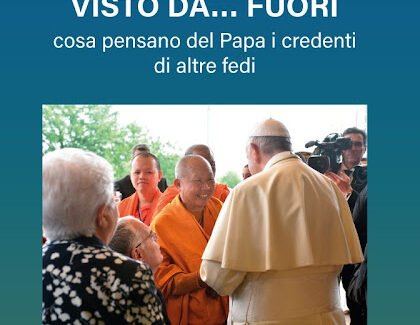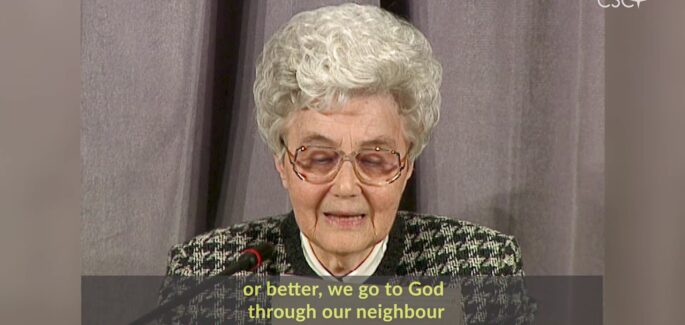A Meeting of Fraternity in the Ivory Coast
In Abidjan, Jesús and companions met with Archbishop Emeritus Cardinal Jean-Pierre Kutwa, Metropolitan Archbishop Cardinal Ignace Bessi Dogbo and Apostolic Nuncio, Archbishop Mauricio Rueda Beltz. The discussions underscored the importance of fraternity in a nation where Christians and Muslims coexist in a fragile but inspiring harmony. The presence of the Focolare Movement, particularly in the “Little Town” of Victoria, was recognized as a beacon of unity, actively supporting the Church and fostering reconciliation within the region.
A highlight of the visit was the gathering of over 300 Focolare members from 15 countries at Mariapoli Victoria. Through testimonies and discussions, participants reaffirmed their commitment to unity and shared responsibility. Patience Mollè Lobè, a former government official from Cameroon, posed a fundamental question: “Can we say that Christian faith and the spirituality of unity have been enculturated in Africa?” The responses reflected a deep desire to root the Gospel within African traditions while strengthening the communal bonds that sustain the people.
The visit coincided with the 50th anniversary of the Focolare Movement in the Ivory Coast. The celebrations illustrated the Movement’s integral role in social development, interfaith dialogue and youth formation. As Margaret Karram, President of the Movement (connected by video link) reminded participants, “God invites us to build unity in the Ivory Coast with an even greater enthusiasm, being close to everyone who passes us by.”
Sierra Leone: Reconciliation and Peacebuilding
In Sierra Leone, Jesús met with the Bishops’ Conference and the local Focolare communities, witnessing a country still healing from its brutal civil war. The Archbishop of Freetown, Edward Tamba Charles, emphasized the essential role of interreligious dialogue in reconciliation efforts. The Focolare Movement, present in various cities, has no central “focolare” house in the country but rather a network of communities deeply integrated into society. The visit to Bo and Makeni highlighted the lingering ethnic divisions from the war, yet also showcased the Movement’s role in bridging divides. By fostering forgiveness, dialogue and social support, the local Focolare communities are actively contributing to Sierra Leone’s rebirth. Jesús encouraged them to continue being an “African Jesus,” living out unity as a transformative force within the Church and society.
Kenya’s Mariapolis Piero: A Hub of Inculturation
Jesús’ brief visit to Kenya focused on the Mariapolis Piero, a centre dedicated to the inculturation of the Focolare spirituality. Here, he encouraged theologians and scholars to develop expressions of Christian unity rooted in African cultural realities. Witnessing the progress in education and community formation, he reaffirmed the importance of nurturing young leaders committed to the Movement’s ideals.
Rwanda: Faith and Reconciliation
In Kigali, over 500 members of the Focolare Movement gathered to share their experiences. Marked by the tragic history of the 1994 genocide, the community in Rwanda has found a powerful tool for healing in the spirituality of unity. Stories of reconciliation, such as families welcoming back estranged members, exemplified the transformative power of love and forgiveness. Margaret Karram’s message to the Rwandan community was one of encouragement: “Be passionate about living the Word, react to suffering with concrete gestures of love, and be protagonists of bringing God to everyone.” Jesús further urged the Movement to remain close to the Church, actively working to spread hope and fraternity in a nation that continues to rebuild itself.
Burundi: The Role of the Church in Healing a Nation
Burundi, like Rwanda, has endured immense suffering due to ethnic violence. Jesús’ visit to Gitega was an opportunity to meet priests, seminarians and religious men and women, discussing how the spirituality of unity can support the Church’s mission. The Focolare Movement in Burundi, present since 1962, experienced significant growth during times of crisis, standing as a pillar of reconciliation and communal solidarity.
Conclusion: A Call to Renewed Commitment
Jesús’ journey through Africa was not merely an institutional visit but a profound encounter with the heart of a continent rich in humanity, faith and resilience. The Focolare Movement continues to play a crucial role in interreligious dialogue, social cohesion and education, offering a model of unity that transcends cultural and ethnic barriers. As Jesús reminded the communities, “Now that Chiara Lubich is no longer here, the Charism is the patrimony of each and every person. It is up to all of us to proclaim it more strongly than ever.”
Reflecting on the visit, Stefania expressed the challenge of truly grasping the depth of Africa’s struggles and strengths. She said, “I have met many “Africas”. I have met Africans who, because of their faith, can look at history not through a single event or pain, but with a broader vision of co-responsibility. It will be together that these peoples will save themselves. I’ll give the last word to Kapuscinsky’s who in “Ebony” said: ‘The continent is too large to describe. It is a veritable ocean, a separate planet, a varied, immensely rich cosmos. Only with the greatest simplification, for the sake of convenience, can we say ‘Africa’. In reality, except as a geographical name, Africa does not exist.’”
With eyes wide open to the challenges and hopes of Africa, the journey remains a work in progress, one guided by faith, love, and a shared responsibility for the future.




